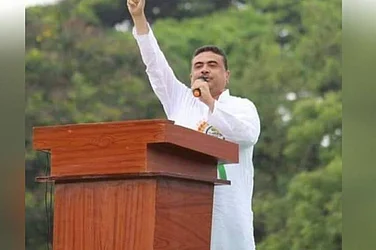One Nation, One Election
One Nation, Many People
India,
that is Bharat,
shall be a Union of States
--- Article 1, Constitution of India, 1950
For the last few years, the Union government has pushed the idea of ‘One Nation, One Election’ in a bid to allegedly change the process of conducting elections in India. The proposal has been heavily criticised and rejected by Opposition parties, who have called it an “assault on Constitution”. The proposal has reignited a debate on federalism –one of the fundamental pillars of Indian democracy– and how a move towards simultaneous elections could fail it.
The next Lok Sabha elections are scheduled for 2024. If the proposed ‘One Nation, One Election’ idea is implemented in the Parliament session before the general elections, it will automatically mean the curtailing of terms of all legislative Assemblies barring four States –Andhra Pradesh, Odisha, Arunachal Pradesh and Sikkim– whose terms have over the years coincided with the Lok Sabha elections. If it is held five years later, it will have a similar situation of curtailing or extending the Assembly terms. Questions have been raised over the strategy behind the idea, the legal issues around it and if there is any need for reforming the election process.
Since coming to power in 2014, Prime Minister Narendra Modi has pitched the idea of ‘One Nation, One Election’ in several rallies and public meetings. The Centre’s intention behind the proposal is that it will ease the process of polls, aid better administration and also save the exchequer big sums of money. The Centre claims that synchronising elections to the Lok Sabha and state Assemblies, as well as local bodies, is the solution to prevent the country from allegedly being in 'permanent election' mode.
But will the simultaneous election be a universal panacea to such issue? Or is India actually facing such 'permanent election mode' in the first place? Criticism has poured in that there was no prior discussion before the formation of the ‘One Nation, One Election’ Committee, headed by former President Ram Nath Kovind. Like other agendas of the ruling party, this agenda too came as a surprise. Several scholars even questioned how the committee could not have the participation from the states when ONOE essentially will affect the regional parties and their political practices.
The question even arises, what is the cost of democracy? One of the political scholars says, "Democracy is costly, autocracy is cheap." Is India ready to bear the cost of democracy?
In the upcoming magazine issue, Outlook takes a deeper look into the idea of ‘One Nation, One Election’ and analyses the constitutional and legal complications around it and whether the move is essential for the Indian democracy or merely an eyewash









.png?auto=format%2Ccompress&fit=max&format=webp&w=768&dpr=1.0)



.png?auto=format%2Ccompress&fit=max&format=webp&w=376&dpr=2.0)












